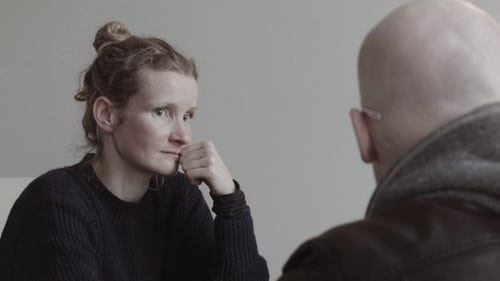
Director of Photography
It's the largest Arctic expedition of all time. In September 2019 the German icebreaker "Polarstern" is on its way to the North Pole. The best scientists of their generation are on board. Their job are to collect data about the ocean, ice, atmosphere and life. The mission is to understand climate change, because the changes in the Arctic have an impact far beyond the region. The documentary provides spectacular close-ups of the MOSAiC expedition under the direction of the Alfred Wegener Institute together with the Helmholtz Center for Polar and Marine Research (AWI) and shows the world of the Arctic during the polar night, from which hardly any data and images existed until now. A scientific, logistical and also human adventure of a community of researchers and crew members who let themselves be frozen with the ship for a year in the ice desert near the North Pole in order to use the natural drift of the ice, captured for the audience in impressive images.

Director of Photography
Since the dawn of time, the inhabitants of the Alps have used their own language to overcome the distance imposed by the mountainous orography. Riafn is a sort of dialect based on the different forms used by the shepherds and farmers of this area to call their beasts. The inhabitants of the mountains have thus cadenced their day-to-day life on calls to animals, the mooing of the cows, songs and the echo of the mountain. A sort of Alpine orchestra that helped them to cope with isolation.

Director of Photography
Heiko, 29, is a fun-loving dance teacher from Berlin. For the past seven years he has battled with a fatal illness. Just when his family and his friends had begun to get used to Heiko’s continued survival in spite of all the prognoses, he receives the diagnosis that he does not have much longer to live. He decides to return to his parents’ house to die. But even now, Heiko and especially his father, Jürgen, refuse to give up hoping for a miracle.

Camera Operator
Milk is Big Business. Behind the innocent appearances of the white stuff lies a multi-billion euro industry, which perhaps isn't so innocent…

Director of Photography
In France’s last presidential election, Marine Le Pen, a right-wing candidate, won over 30 per cent of the vote after an attempt to rebrand a party long associated with her controversial father, Jean-Marie Le Pen. See how three of her supporters faced similar obstacles in changing the narrative.

Director of Photography
Este documental sigue la historia de cinco hombres de cinco países distintos que luchan por cumplir sus sueños. Todos tienen dos cosas en común: son homosexuales y van a bordo del “Dream Boat” (barco de los sueños), un crucero que zarpa una vez al año y cuyo único requisito es ser un hombre gay. El objetivo de este viaje de siete días es encontrar amor, libertad, y rayos de sol, pero también está lleno de historias personales, dudas e incertidumbres.

Director of Photography
Giò, a 13-year-old girl living in the south of Italy, is the head of a boys' gang. She's secretly in love with young Paola, and she's ready to compete with male opponents to win her heart. In the last day of summer, innocence ends.

Director of Photography
In the aftermath of the Fukushima nuclear disaster, a Japanese farmer ekes out a solitary existence within the radiation red zone.

Director of Photography

Director of Photography
Una isla de roca estéril en la costa de Perú. Sin suelo, sin agua, pero con cientos de miles de aves. Durante un período de diez años, sólo dos guardias pueden vivir en Guanape Sur.

Director of Photography
Marx Reloaded is a cultural documentary that examines the relevance of German socialist and philosopher Karl Marx's ideas for understanding the global economic and financial crisis of 2008-09. The crisis triggered the deepest global recession in 70 years and prompted the US government to spend more than 1 trillion dollars in order to rescue its banking system from collapse. Today the full implications of the crisis in Europe and around the world still remain unclear. Nevertheless, should we accept the crisis as an unfortunate side-effect of the free market? Or is there another explanation as to why it happened and its likely effects on our society, our economy and our whole way of life?









